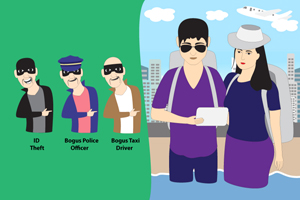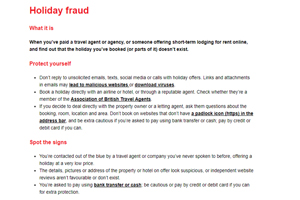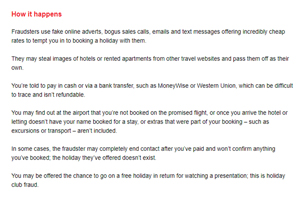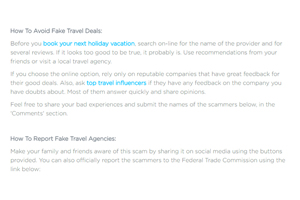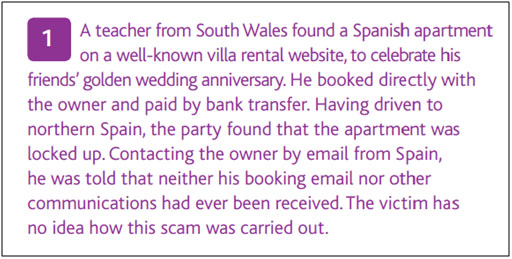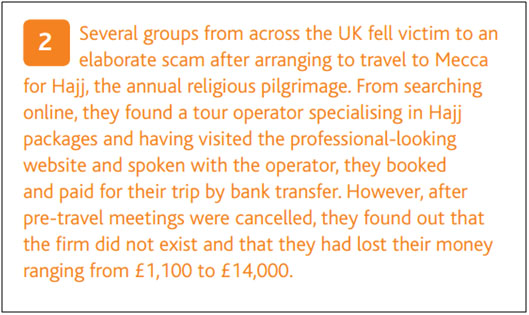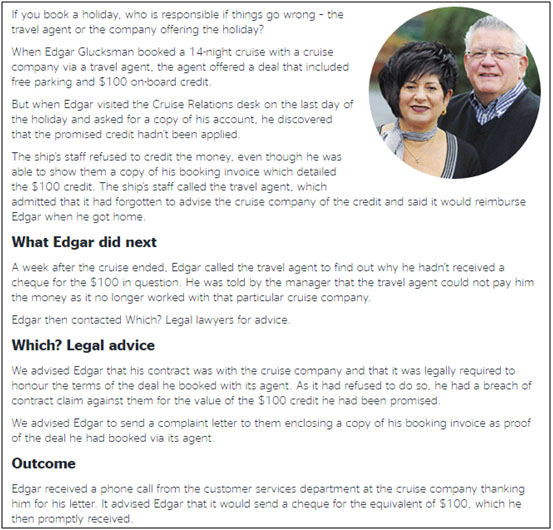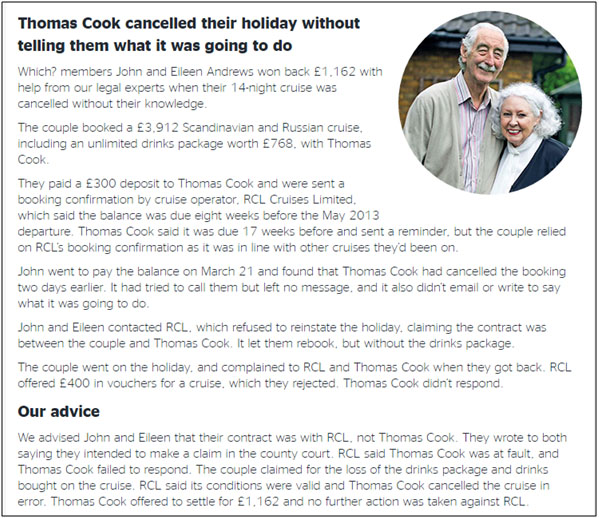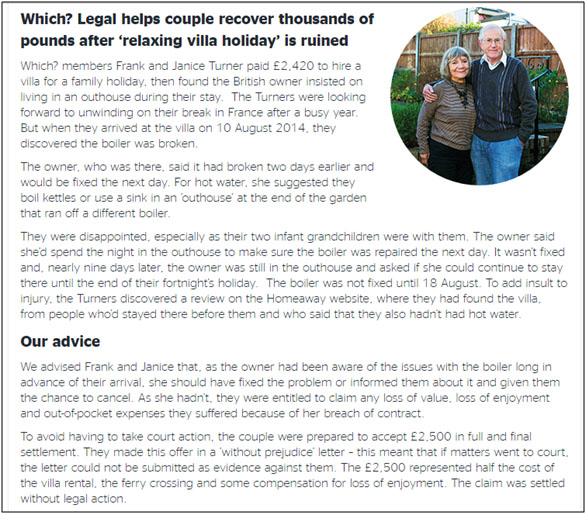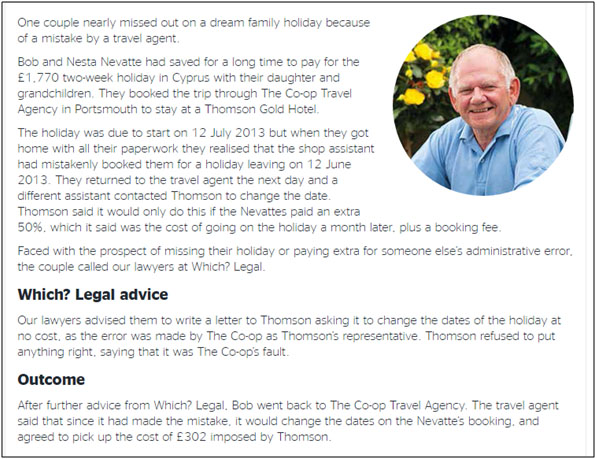Holiday and Travel Scams
Holiday and travel scams exploit eager vacationers with phony deals, false booking sites, and fraudulent travel packages. Before planning your next getaway, be cautious of offers that seem too good to be true to ensure a stress-free trip.
 Summer is a peak season for travel agencies, as many individuals take a break from their demanding jobs
to embark on vacations. When plotting a holiday, most of us
start by scouring for travel agencies that offer enticing packages at affordable rates. However, it's
essential to tread with caution. The very act of searching for
holiday deals or filling out online surveys can expose you to crafty scammers aiming to siphon your
savings. To safeguard your funds and ensure a hassle-free trip,
it's crucial to verify the legitimacy of any travel agency you consider. By doing so, you can steer
clear of deceptive travel entities and common holiday scams.
Summer is a peak season for travel agencies, as many individuals take a break from their demanding jobs
to embark on vacations. When plotting a holiday, most of us
start by scouring for travel agencies that offer enticing packages at affordable rates. However, it's
essential to tread with caution. The very act of searching for
holiday deals or filling out online surveys can expose you to crafty scammers aiming to siphon your
savings. To safeguard your funds and ensure a hassle-free trip,
it's crucial to verify the legitimacy of any travel agency you consider. By doing so, you can steer
clear of deceptive travel entities and common holiday scams.
Navigating the Web of Travel Scams
Scammers frequently lure potential victims with promises of free travel vouchers, offering heavily discounted stays and flights to sought-after destinations like Indonesia, Thailand, Florida, and the Bahamas. If you express interest in their too-good-to-be-true offer, they'll swiftly request your credit card, banking, and personal information to "process" the vouchers. However, once they have your details, they promptly drain your account. To maintain the illusion of legitimacy, many victims receive counterfeit vouchers, delaying any suspicion until the scammer has retreated to safety. The dual intent behind these scams is not only to defraud you of your money but also to commit identity theft using the personal information you've provided.
Guarding Against Holiday and Travel Scams
Vet Before You Venture
When an attractive holiday deal catches your eye, consider reaching out to the accommodation or travel provider directly instead of going through a third party. Take a moment to read online reviews about the travel agency or company you're considering. Furthermore, ensure that the company is accredited by AFTA (American Federation of Travel Agents). By taking these precautions, you can steer clear of potential travel scams.
Guard Your Financial Information
When booking your holidays, the payment method you choose can make a difference in your security. Whether you're paying via cheque, wire transfer, or online, always be cautious about sharing your banking information. Opting for secure payment methods like credit cards can be advantageous, as they often provide the option to chargeback if a deal falls through. If you ever suspect that you might have been scammed after sharing your details, take immediate action by contacting your bank or financial institution to prevent potential misuse by scammers.
Thoroughly Review Terms and Conditions
When considering a specialized tour package, especially ones centered around events or sports, ensure that it includes all necessary amenities such as accommodations, meals, airfare, and event tickets. During past major events like the Olympics, many travelers were misled by deceptive travel promoters. These promoters provided vouchers for travel and lodging, but excluded event tickets, leaving many attendees watching from their hotel rooms rather than the venue. Therefore, it's crucial to meticulously go over the terms and conditions before committing to any discounted travel package.
By adhering to these guidelines, you can better protect yourself from travel scams that could leave you stranded abroad without funds.
Vacations and travel offer a refreshing break for many, especially the affluent who often indulge in such luxuries. However, this sector hasn't been spared by scammers. As the scam industry rapidly evolves, they exploit the unsuspecting traveler with a myriad of deceptive tactics. Though there are numerous tricks up their sleeves, here are some prevalent and recent methods used in holiday and travel scams:
Beware of These Prevalent Holiday Scams
Timeshares and Vacation Clubs – Unsuspecting individuals are often lured with promises of complimentary vacations, stays in luxurious hotels, and thrilling adventures in exotic locales, all at slashed prices. However, the catch often lies in mandatory seminars. During these events, captivating presentations are made, manipulating attendees into purchasing deceptive timeshares.
Vacation Rentals – One of the most common travel scams involves creating bogus websites, hijacking genuine rental accounts, and placing deceptive ads on popular platforms and social media. This tactic lures unsuspecting travelers into booking non-existent accommodations.
Flight Deals – Consumers are often lured with enticing offers for discounted airfares. Unfortunately, after payment, they either receive counterfeit tickets or no tickets at all, leaving them stranded or out of pocket.
Airline Scam Case Study - In 2014, a honeymooning couple from North Yorkshire looked forward to a Valentine's weekend getaway to Loch Ness. Their excitement turned to dismay when they discovered they had been defrauded of £1,000. Their airline tickets, booked through a seemingly legitimate website, turned out to be part of a scam.
Sports and Religious Tours – Due to the limited ticket availability and soaring prices, events like sports and religious pilgrimages often become prime targets for fraudsters. For instance, many pilgrims faced substantial losses during their religious journey to Hajj in Saudi Arabia. Major sporting events such as the Commonwealth Games and the World Cup also draw the attention of scam artists. As predicted by the NFIB, the European Football Championships in France and the Olympics in Rio de Janeiro were identified as major scam targets for 2016.
Red Flags to Recognize and Evade Holiday and Travel Scams
Red Flag 1 - Exercise caution when presented with deals that seem too good to be true, especially when they're significantly cheaper than competitor offerings. It's essential to conduct online research: scrutinize their website, delve into travel forums for feedback, and importantly, assess reviews and references associated with them. Legitimate holiday packages usually require a deposit upon booking, with the balance payable shortly before the trip commences. If you are pressured to pay the full amount upfront, it's a clear indication of potential deceit.
Red Flag 2 - Beware of websites displaying low-resolution or pixelated logos; they often signal a need for caution. Scammers might infiltrate genuine holiday accommodation sites or craft deceptive websites that mimic legitimate ones. Before making any transactions, it's crucial to conduct thorough research.
Red Flag 3 - Be cautious if the sole payment method offered is through a bank transfer. This is often a telltale sign of potential fraud, as retrieving your funds becomes nearly impossible once the scammer or agency vanishes or shuts down.
In a 2014 report from the City of London Police National Fraud Intelligence, it was revealed that holiday fraud victims had lost an estimated total of £7m, with £2.2m specifically attributed to online scams. On average, individuals faced a loss of £889, but one unfortunate victim was defrauded of a staggering £62,000 in a timeshare-related scam.
Common Travel Scams: A Closer Look
Traveling is an enriching experience, but it's essential to be aware of potential scams that can ruin your journey. Here are some notorious travel scams to watch out for:
The "Fake Police" Ruse
Often, scammers pose as police officers to exploit unsuspecting tourists. They may falsely accuse travelers of a crime or demand their wallets and personal items for "verification." Not only is the traveler at risk of losing money, but their ID could also fall into the wrong hands, leading to potential identity theft. Another variation of this scam involves a stranger asking a tourist to watch their luggage for a moment. Once the stranger is out of sight, the "police" swoop in, alleging there are illegal items in the luggage and demanding a hefty bribe to avoid arrest. If you find yourself in such situations, remain calm and insist on being taken to the nearest official police station to clarify any misunderstandings.
Always remember, knowledge is power. By being informed about these scams, you can better protect yourself and ensure a more enjoyable travel experience.
Identity Theft Amidst Travel Scams
Travelers often fall prey to identity theft in various ways. Common tactics include tampered ATMs that skim credit card details, unsecured Wi-Fi networks in popular tourist locations that hackers exploit to intercept personal data, stealthy photographs of credit cards during transactions, and notorious pickpocketing hotspots in well-visited destinations. To shield oneself from identity theft, it's advisable to minimize what you carry, connect only to secure and reputable Wi-Fi networks, and opt for ATMs located in established bank branches or other trusted locations.
Always prioritize your safety and be vigilant about your belongings and information, ensuring a hassle-free travel experience.
Distraction Thefts: A Notorious Travel Scam
One of the prevalent travel scams involves distraction theft. Typically, a group of thieves or even a solitary con artist will engage in a ruse to divert your attention. It could be a simple bump or nudge, a plea for directions, or an unsolicited offer to assist. While you're momentarily sidetracked, they swiftly snatch your belongings, be it from your luggage or directly from your pockets. To safeguard against such tactics, diversify the locations of your valuables. Ensure that crucial items like credit cards and passports aren't stored together. Investing in anti-theft clothing or accessories can also provide an additional layer of protection.
Being aware of your surroundings and adopting these preventive measures can greatly reduce the risk of falling victim to these opportunistic thieves.
The Deceptive Petition Scam
A deceptive travel scam often encountered involves individuals, sometimes children, presenting themselves with alleged rare ailments or disabilities. They seek your signature on a petition, seemingly innocent at first. However, once signed, they assertively demand a donation, using the document you've just signed as "proof" of your commitment. To sidestep such scams, it's prudent to refrain from signing unfamiliar documents. If you're inclined to sign, ensure you comprehensively read and understand any terms or conditions to avoid unwarranted obligations. Staying vigilant and skeptical of unsolicited requests during travels can save you from unforeseen troubles.
The Counterfeit Currency Ruse
A prevalent travel scam involves the use of counterfeit currency. Unscrupulous individuals might take advantage of tourists' unfamiliarity with local money, providing them with fake bills as change or shortchanging them. Tourists, unaware of the nuances of the local currency, may unknowingly accept these counterfeit notes. To guard against this, it's essential to acquaint yourself with the appearance and feel of legitimate bills of the destination you're visiting. Consider exchanging money at reputable banks or official currency exchange counters, and always inspect and count your change carefully. Being informed and alert can help ensure your cash transactions abroad are genuine and fair.
The Dubious Airport Taxi Scheme
Travelers should be wary of taxi scams often initiated at airports. Some taxi drivers may employ deceptive tactics, such as taking unnecessarily long routes or suddenly hiking fares after covering a certain distance. To safeguard against such ruses, always negotiate or confirm the fare before embarking on your ride. Ensure payment is only made upon arriving at your intended destination. Additionally, for added security, it's a good practice to verify the driver's license or identification before beginning your journey.
Opting for official airport taxis or scheduling transportation in advance can serve as a precaution against the uncertainties of unofficial or rogue taxi services.
Common Holiday Scams to Watch Out For
The festive spirit of the holiday season can sometimes be marred by malicious scams. Here's a look at one such scheme:
The Holiday Phishing Ploy
During the festive season, scammers ramp up their activities, preying on the anticipation of holiday deals. Unsuspecting individuals often find their inboxes flooded with enticing offers, discounts, and vouchers purportedly from reputable merchants. However, these seemingly benign emails often redirect to fraudulent websites that can inject malware into your device or pilfer sensitive information, leading to identity theft. To shield yourself from these deceptive tactics, always approach such emails with caution. If an offer seems too good to be true, it probably is. Rather than clicking on links from the email, navigate directly to the merchant's official website to verify any promotions.
Remember, staying vigilant and informed is the key to enjoying a scam-free holiday season.
The Trap of Malicious Links During the Holidays:
Beware of counterfeit online advertisements, e-greetings, and unsolicited email attachments during the festive season. These can often redirect you to fraudulent websites meticulously crafted by scammers. Engaging with these sites or downloading attachments can compromise your device, allowing intruders to access your personal data. You might even find yourself inundated with deceptive notifications about delivery issues or package discrepancies. To shield yourself from such tactics, resist the urge to click on unfamiliar links or download dubious email attachments. If you're anticipating a package and receive an alert, always verify by visiting the retailer's official website and tracking your order there.
During the holiday rush, a cautious approach can ensure both your festive spirit and personal data remain uncompromised.
The Vacation Home Rental Ruse
With the rise in popularity of vacation home rental platforms, scammers have found a new avenue to deceive unsuspecting travelers. While many platforms offer legitimate listings, it's crucial to exercise caution. Fraudulent listings might appear genuine but often exhibit red flags, such as suspiciously low rates, limited payment methods—primarily bank transfers—and vague location details. To safeguard yourself, it's recommended to thoroughly review the property details, read past guest reviews, and communicate directly with the property owner or manager. Avoiding direct bank transfers and using platform-approved payment methods can also reduce the risk of falling prey to such scams. By being attentive and conducting due diligence, you can ensure a safe and delightful holiday accommodation experience.
The Holiday Contest Deception:
The allure of winning is hard to resist, especially during the festive season. Scammers capitalize on this sentiment with the contest scam, which spikes in prevalence during the holidays. These fraudsters craft convincing emails or messages, notifying recipients that they've struck gold in a lottery or contest—one they never even entered. The catch? They must first pay certain "taxes" or "fees" to retrieve their winnings. It's vital to remember that genuine lotteries or contests will never ask winners to pay upfront fees. In legitimate scenarios, any deductions, such as taxes, are typically subtracted from the winnings themselves. When confronted with such tantalizing offers, it's crucial to pause, reflect, and remember the old adage: If it seems too good to be true, it probably is.
Case Study Highlights
The impact of holiday fraud is multifaceted, often culminating in both financial setbacks and profound disappointment for the victims. Here are some illustrative case studies showcasing the varied manifestations of holiday and travel scams: Being vigilant and informed can help in navigating the myriad of scams that surface especially during the festive season.
- Here's an all-too-common scenario in the world of holiday scams: A teacher decides to book an apartment in Spain through a villa rental website. Trusting the platform, she makes the payment via a bank transfer. Upon arrival, she discovers the apartment is locked. After reaching out to the genuine property owner, she learns that her booking and payment never made it to them. Given the nature of her online transaction, recovering her funds proves to be a challenge.
Such incidents underscore the importance of thorough verification and caution when making travel arrangements online.
Such episodes emphasize the critical need for due diligence and research when entrusting significant sums to online entities, especially for revered events like the Hajj.

